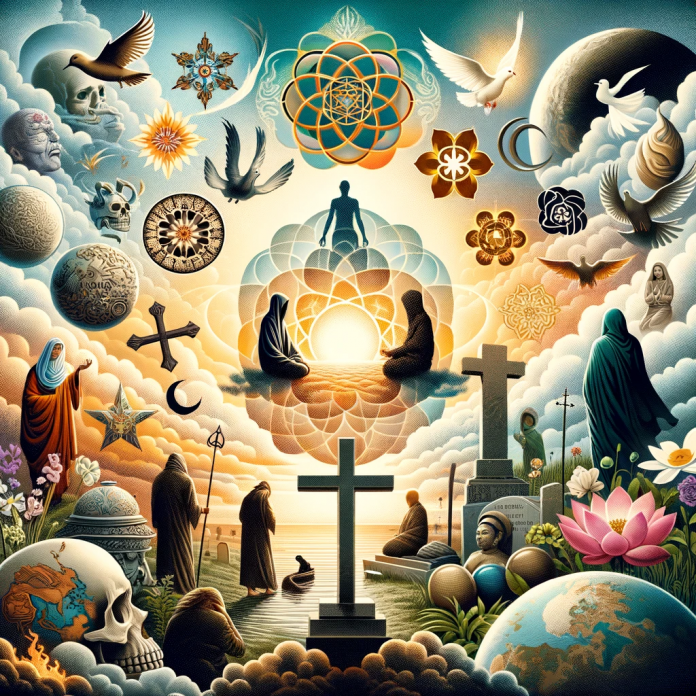Death and mourning are universal experiences that all humans encounter, yet the way we perceive and deal with them can vary greatly. This is largely influenced by our cultural and religious beliefs. This exploration delves into the different religious perspectives on death and mourning, offering a deeper understanding of how diverse faiths interpret these inevitable aspects of life.
Christianity and Death
Christianity, one of the world's largest religions, has a specific perspective on death and mourning. Christians believe in an afterlife, where the soul either ascends to heaven or descends to hell based on one's actions during their lifetime. Death is seen as a transition from the earthly life to eternal life.
Mourning in Christianity involves a funeral service, where prayers are said, hymns are sung, and the life of the deceased is celebrated. It is a time of grief, but also a time of hope in the resurrection and eternal life.
The Concept of Resurrection
Central to Christian beliefs about death is the concept of resurrection. This belief stems from the resurrection of Jesus Christ, which is celebrated every Easter. Christians believe that just as Christ was raised from the dead, they too will be resurrected to eternal life.
This belief provides comfort and hope to many Christians facing death or grieving the loss of a loved one. It reassures them that death is not the end, but a new beginning in the presence of God.
Islam and Death
Like Christianity, Islam also believes in an afterlife. Muslims believe that after death, the soul is separated from the body and enters an intermediate state known as Barzakh until the Day of Judgment. On this day, each individual will be judged by their deeds and intentions during their lifetime.
Mourning in Islam is a time of reflection and prayer. It is customary for Muslims to offer prayers for the deceased and to give charity on their behalf. Mourning periods can vary, but it is common for immediate family members to mourn for three days.
The Day of Judgment
The Day of Judgment, or Yawm al-Qiyamah, is a significant concept in Islamic beliefs about death. Muslims believe that on this day, all humans will be resurrected and judged by God. This belief influences how Muslims live their lives, encouraging them to lead righteous lives in anticipation of this day.
The belief in the Day of Judgment also provides comfort to those mourning the loss of a loved one. It reassures them that they will be reunited with their loved ones in the afterlife, providing a sense of hope amidst their grief.
Buddhism and Death
Buddhism, unlike Christianity and Islam, does not believe in an eternal soul. Instead, Buddhists believe in the concept of rebirth. Death is seen as a part of the cycle of life, death, and rebirth. This cycle, known as Samsara, continues until one achieves Nirvana, the state of liberation from suffering.
Mourning in Buddhism involves rituals that aid in the transition of the deceased from this life to the next. These rituals vary widely among different Buddhist cultures, but often involve meditation, chanting, and making offerings to the deceased.
The Concept of Samsara
Samsara, or the cycle of birth, death, and rebirth, is a fundamental concept in Buddhism. Buddhists believe that one's actions in this life will determine their status in the next life. This belief encourages Buddhists to lead lives of kindness and compassion.
The belief in Samsara also influences how Buddhists perceive death and mourning. Death is not seen as an end, but as a transition to a new life. This perspective can provide comfort to those grieving the loss of a loved one, as it suggests the possibility of reunion in future lives.
Conclusion
While death and mourning are universal experiences, our understanding and interpretation of them are greatly influenced by our religious beliefs. These beliefs provide us with a framework to make sense of death, offer comfort in times of grief, and guide us in honoring and remembering our loved ones.
By exploring different religious perspectives on death and mourning, we can gain a deeper understanding of the diverse ways in which humans grapple with these inevitable aspects of life. This understanding can foster empathy and respect for different cultural practices and beliefs, enriching our collective human experience.


-banner.png)





